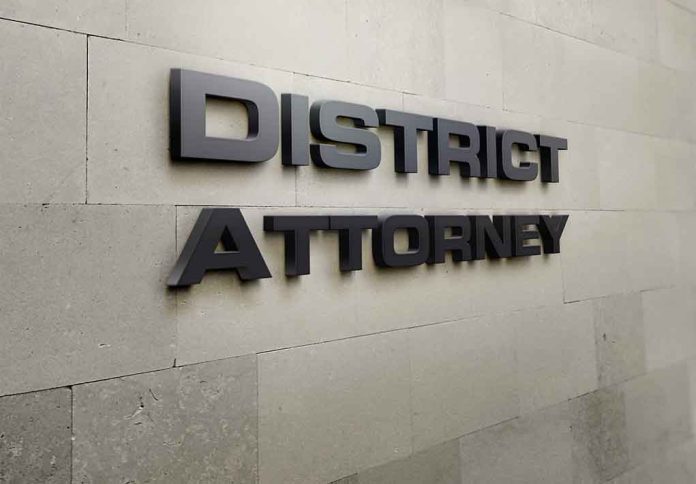
Under President Trump, Attorney General Pam Bondi plans to remove safeguards that prevent politically motivated prosecutions, potentially transforming the Department of Justice into a weapon against political opponents while empowering U.S. attorneys with unprecedented authority.
Key Takeaways
- Attorney General Bondi plans to eliminate the requirement for the Public Integrity Section (PIN) to approve prosecutions of public officials, which could remove a critical safeguard against partisan legal actions.
- The DOJ’s Public Integrity Section has already been reduced from 30 prosecutors under the Biden administration to fewer than 5 under the Trump administration.
- Critics claim the move is part of a larger pattern of politicizing the DOJ, while supporters argue it restores balance to a justice system they believe targeted conservatives.
- These safeguards were notably not applied during Donald Trump’s own prosecution when he ran for president in 2024, raising questions about selective enforcement.
- The proposed changes would give U.S. attorneys more direct power to prosecute members of Congress and other officials without oversight from career justice experts.
Proposed Elimination of DOJ Safeguards Raises Concerns
According to sources within the Department of Justice, Attorney General Pam Bondi is considering the elimination of a significant safeguard designed to prevent politically motivated prosecutions. The proposal would remove the requirement for federal prosecutors to obtain approval from the DOJ’s Public Integrity Section (PIN) before prosecuting public officials, including members of Congress. This change would effectively bypass a longstanding check on potential abuse of prosecutorial power, allowing U.S. attorneys—who are political appointees—to pursue cases against elected officials without additional departmental oversight.
“Federal prosecutors across the country may soon be able to indict members of Congress without approval from lawyers in the Justice Department’s Public Integrity Section, according to three people familiar with a proposal attorneys in the section learned about last week. Under the proposal, investigators and prosecutors would also not be required to consult with the section’s attorneys during key steps of probes into public officials, altering a long-standing provision in the Justice Department’s manual that outlines how investigations of elected officials should be conducted.” The Post
The proposed change comes amid broader accusations that the DOJ under Bondi has become increasingly politicized to serve President Trump’s interests. Multiple sources within the department, speaking on condition of anonymity due to fears of retaliation, have expressed concern that this move could enable targeted prosecutions against political opponents while shielding allies from legal scrutiny. The proposal has not yet been finalized but represents a significant potential shift in how public corruption cases are handled.
Public Integrity Section Dramatically Reduced Under Trump Administration
The Public Integrity Section has traditionally served as an important check in the prosecution of public officials, bringing institutional knowledge and consistency to these sensitive cases. Career prosecutors in this division help ensure that similar situations are treated equally across party lines and administrations. However, since President Trump took office, this section has been systematically reduced in size and influence, raising additional concerns about the proposed policy change.
“Since Trump took office, PIN has already been hollowed out, as have other DOJ offices. The 30 prosecutors working in the office at the end of the Biden administration have been cut to fewer than five. Several have resigned, been reassigned, or were fired after clashing with Bondi and other Trump appointees.” – The Daily Beast
The dramatic reduction of staff—from 30 prosecutors to fewer than five—suggests a deliberate weakening of this oversight mechanism even before the formal policy change. Critics argue that this staffing reduction, combined with the proposed elimination of PIN’s approval authority, creates a dangerous situation where politically motivated prosecutions could proceed unchecked. Some former DOJ officials have noted that this two-pronged approach effectively dismantles protections that have been in place across both Republican and Democratic administrations.
Differing Perspectives on Justice Department Reforms
Supporters of Bondi’s proposed changes argue that they are necessary corrections to what they view as previous political weaponization of the justice system. Assistant Attorney General Aaron Reitz has defended the administration’s approach, suggesting that Bondi is working to restore the justice system after what Trump supporters describe as years of partisan targeting. The controversy intensified following an investigation into a detention center riot involving immigration activists and Democratic lawmakers, with Vice President JD Vance remarking that congressional membership should not provide immunity from legal consequences.
“The reason you have the section is exactly what this administration says they want, which is stop politicization. That requires a respect and ability to understand how the laws have been applied in similar situations in the past. The only way to ensure that public officials on both sides of the aisle are treated similarly is to have as much institutional knowledge and experience as possible.” – Dan Schwager
Critics, however, see a more troubling pattern emerging. They point to Bondi’s establishment of a “weaponization working group” focused on pushing narratives that investigations into Trump were politically motivated, coupled with accusations that the DOJ has halted major prosecutions of Trump allies while pursuing investigations of his critics. The administration’s defenders counter that these reforms are bringing needed balance to a system they believe had been tilted against conservatives for years, particularly during Trump’s 2024 campaign when these same safeguards were not triggered to protect him from prosecution.
Implications for American Justice
The potential removal of these prosecutorial safeguards represents a significant shift in how the DOJ operates. While the Trump administration frames these changes as necessary reforms to prevent abuse, legal experts across the political spectrum have raised concerns about removing institutional guardrails that have traditionally helped maintain the department’s independence and credibility. The DOJ’s reputation rests on being seen as pursuing justice impartially, regardless of political affiliations.
“The steps Trump and Bondi have taken using DOJ to punish enemies and reward allies while firing those who object radically transforms and politicizes DOJ in a way that not even the worst who have gone before them ever contemplated.” Paul Rosenzweig
The controversy underscores a fundamental tension in American governance: balancing political accountability with judicial independence. For conservative supporters of the administration, these changes represent a necessary correction to perceived partisan abuse of the justice system. For critics, they signal a dangerous erosion of institutional safeguards designed to prevent the weaponization of law enforcement against political opponents. As the policy continues to develop, its implementation will likely determine whether it strengthens or weakens public confidence in the rule of law.



